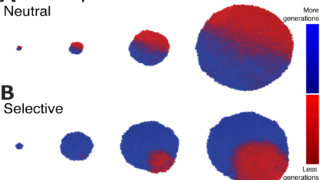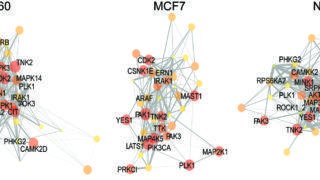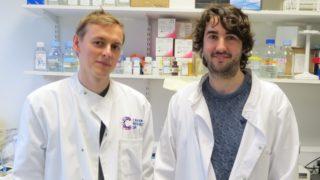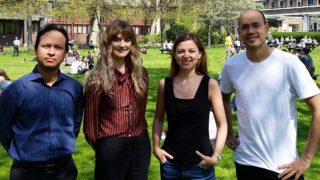Tag: Computer models
Search News
Categories
Archives
Using AI to study tumour evolution
2nd September 2020
Researchers have developed a computation model that can reconstruct the evolutionary history of cancer. By unravelling the genetic complexity of a tumour, the tool can be used to better understand how the cancer has developed and may help to guide treatment strategies in the future.
Read moreEvolutionary Insights: From cancer to corals
27th August 2020
Dr Benjamin Werner has teamed up with evolutionary ecologists as part of a new research collaboration, funded by a $1 million research grant from the Human Frontier Science Program.
Read moreProtein network rewiring in cancer
20th January 2020
Research published in Nature Biotechnology has identified new ways to analyse the complexity of the internal workings of normal cells and cancer cells. The study highlights how genetic changes rewire the biochemistry of cancer cells and may aid in identifying new drug targets specific for a patient’s disease.
Read more‘Chromosomal Catastrophes’ in Colorectal Cancer
5th September 2018
Understanding how cancers develop and change over time is a big challenge. For obvious reasons, scientists can’t simply sit and watch a cancer growing in a person. Members of the Evolution and Cancer Laboratory at the BCI, including lead author Dr William Cross, were part of a collaborative team that set out to identify when particular genetic changes arise during bowel cancer development.
Read moreForecasting the evolution of cancer
28th May 2018
New research, published today in Nature Genetics, has developed a computer model that forecasts the changes that occur within tumours as they develop. In the future, it is hoped that such a model may enable the prediction of the trajectory of tumour growth in patients, allowing clinicians to pre-empt disease course and tailor treatment regimens accordingly.
Read moreFellows inaugurated at new Rutherford Academy of Population Genomics and Health Data Science
16th May 2018
Queen Mary University of London has appointed four research fellows to its new Rutherford Academy of Population Genomics and Health Data Science, funded by the Medical Research Council and UK Research and Innovation’s Rutherford Fund. Two of the fellows include BCI’s Dr Kit Curtius and Dr Dayem Ullah.
Read more





